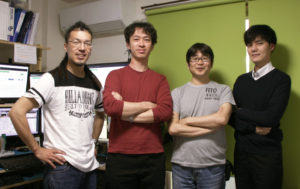
The Spring Rush
Spring has traditionally been a great hunting season for buyers looking for cars in the auctions in Japan. There are many reasons for this.
First of all, many businesses end their financial year at the end of March, so they are often getting rid of old vehicles and getting in new ones around that time. Then in May is when the next year of car tax is going to be paid. Now, you don’t want to pay car tax on a vehicle you are thinking about replacing, so it makes sense to replace it just before.
Of course, many individuals and businesses time their purchasing of cars to this rhythm, which means that they also find that their existing cars are going to hit the expiration of their Shaken (roadworthiness test) around this Spring period also. Once again, if you are thinking you might want to replace your car anyway, why would you want to spend upwards of $1000 USD getting it re-certified? It just does not make sense, so for many people this is another prod pushing them to get a new car around this time.
How does the Spring Rush affect you?
Well, first of all, the volume of vehicles being traded in goes up and dealers across Japan need to offload these quickly. The best place to do this is the car auctions.
More cars means more choice
While we have seen numbers peak at over 50,000 used vehicles for sale on just one day at some points during the Springs of recent years, this was more common back in 2006 or 2007 prior to the economic slowdown. Now it is more common to see daily numbers hit the low 40,000s at this time of year. Still a lot of cars, I’m sure you will agree.
More cars means less competition per car
So, first of all there is a lot more choice for one thing. But also higher numbers means something else - more cars with similar numbers of bidders means that there are fewer people per car. Less people means less competition – and lower levels of competition can then result in lower overall prices.
Notice I am not saying that you will definitely get a better deal if you buy in Spring rather than in Summer. Rather what this means is that it will probably take less time and effort to get the car you want at the price you want in Spring than it will at other times of the year.
Japanese Holidays
Japanese holidays may not have a lot of influence over the number of cars coming into the car auctions, but they do affect when the auctions will be held.
Western countries would not run auctions on Christmas Day, like the Japanese do. But there are holidays that are important in the Japanese calendar, during which the numbers of auctions running are significantly lower or non-existent.
It's not just the auctions that shut down at these times. Other related suppliers, like shipping companies, customs agents, trucking companies etc. do as well. Bear in mind that if you buy cars in the couple of weeks prior to a major holiday period you may find that, as a result, they end up on a later ship than they usually would.
O-bon
O-bon is the Buddhist festival of the dead. Traditionally, Japanese people will return to their family homes that are often in the countryside to pay their respects to both deceased ancestors and living relatives.
O-bon itself is on August 15th, but the week in which this occurs is often a downtime for Japanese companies. Larger companies, such as Toyota, will regularly take advantage of this time for maintaining old production lines or installing new ones. The Japanese car auctions will have a week of either low numbers or no auctions during this period.
These holiday times are worth knowing for the opposite reason that it is useful to know about the Spring Rush: In Spring you can expect more cars with reduced competition, but during these holiday periods you will have fewer or no chances to buy.
The last thing you want to do is to tell your customer you will get right onto getting his car for him, only to find that the auctions are going to be out of action for a week!
Golden Week
Yes, that is “Golden Week” in English without a fancy Japanese-sounding name. This is a period at the end of April and early in May when there are a cluster of public holidays. In Japan people will often combine these with one or two personal holiday days to make a continuous period of 5 days to one week.
Many companies have formalized this and the car auctions are no exception. This period can start around April 28th or 29th and continue until May 3rd or 4th. As with the New Year break, the exact timing can be influenced by proximity to weekends etc.
O-Shogatsu – New Year
This covers the period from the very end of December through the first few days of January. Typically, auctions will stop around December 27th or 28th, and then restart around January 5th or so.
Every year can be slightly different, which is why we post details of the exact days of any holiday period here on our website to keep you up to date.

We find that the most successful importers really understand how it all works - from the auction to the ship and beyond. Don't get left behind!


